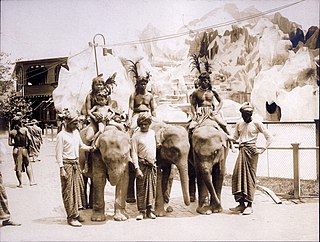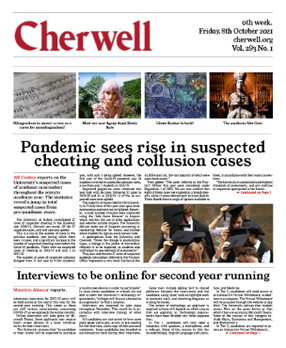Related Research Articles

Gerald Malcolm Durrell, was a British naturalist, writer, zookeeper, conservationist, and television presenter. He founded the Durrell Wildlife Conservation Trust and the Jersey Zoo on the Channel Island of Jersey in 1959. He wrote approximately forty books, mainly about his life as an animal collector and enthusiast, the most famous being My Family and Other Animals (1956). Those memoirs of his family's years living in Greece were adapted into two television series and one television film. He was the youngest brother of novelist Lawrence Durrell.

Eleanor Farjeon was an English author of children's stories and plays, poetry, biography, history and satire.

Penguin Books Limited is a British publishing house. It was co-founded in 1935 by Allen Lane with his brothers Richard and John, as a line of the publishers The Bodley Head, only becoming a separate company the following year. Penguin revolutionised publishing in the 1930s through its inexpensive paperbacks, sold through Woolworths and other stores for sixpence, bringing high-quality fiction and non-fiction to the mass market. Its success showed that large audiences existed for serious books. It also affected modern British popular culture significantly through its books concerning politics, the arts, and science.

Sir Edward Montague Compton Mackenzie, was a Scottish writer of fiction, biography, histories and a memoir, as well as a cultural commentator, raconteur and lifelong Scottish nationalist. He was one of the co-founders in 1928 of the National Party of Scotland along with Hugh MacDiarmid, R. B. Cunninghame Graham and John MacCormick. He was knighted in 1952.

Sir Lewis Bernstein Namier was a British historian of Polish-Jewish background. His best-known works were The Structure of Politics at the Accession of George III (1929), England in the Age of the American Revolution (1930) and the History of Parliament series he edited later in his life with John Brooke.

Frederick Louis MacNeice was an Irish poet, playwright and producer for the BBC. His poetry, which frequently explores themes of introspection, empiricism, and belonging, is considered to be among the greatest of twentieth century literature. Despite being renowned as a member of the Auden Group, he was also an independently successful poet with an influential body of work, which is replete with themes ranging from faith to mortality. His body of work was appreciated by the public during his lifetime, due in part to his relaxed but socially and emotionally aware style. Never as overtly or simplistically political as some of his contemporaries, he expressed a humane opposition to totalitarianism as well as an acute awareness of his roots.

Human zoos, also known as ethnological expositions, were public displays of people, usually in a so-called "natural" or "primitive" state. They were most prominent during the 19th and 20th centuries. These displays sometimes emphasized the supposed inferiority of the exhibits' culture, and implied the superiority of "Western society", through tropes that purported marginalized groups as "savage". They then developed into independent displays emphasizing the exhibits' inferiority to western culture and providing further justification for their subjugation. Such displays featured in multiple colonial exhibitions and at temporary exhibitions in animal zoos.
Kathleen Hale OBE was a British artist, illustrator, and children's author. She is best remembered for her series of books about Orlando the Marmalade Cat.
Puffin Books is a longstanding children's imprint of the British publishers Penguin Books. Since the 1960s, it has been among the largest publishers of children's books in the UK and much of the English-speaking world. The imprint now belongs to Penguin Random House, a subsidiary of the German media conglomerate Bertelsmann.
Eric Robert Russell Linklater CBE was a Welsh-born Scottish poet, fiction writer, military historian, and travel writer. For The Wind on the Moon, a children's fantasy novel, he won the 1944 Carnegie Medal from the Library Association for the year's best children's book by a British subject.

Cherwell is a weekly student newspaper published entirely by students of Oxford University. Founded in 1920 and named after a local river, Cherwell is a subsidiary of independent student publishing house Oxford Student Publications Ltd. Receiving no university funding, the newspaper is one of the oldest student publications in the UK.

William Montgomery Watt was a Scottish Orientalist, historian, academic, and Anglican priest. From 1964 to 1979, he was Professor of Arabic and Islamic Studies at the University of Edinburgh. He was also a contributor to the field of Quranic studies.

The Story of the Treasure Seekers is a novel by E. Nesbit first published in 1899. It tells the story of Dora, Oswald, Dicky, Alice, Noel, and Horace Octavius Bastable, and their attempts to assist their widowed father and recover the fortunes of their family. The novel's complete name is The Story of the Treasure Seekers: Being the Adventures of the Bastable Children in Search of a Fortune. The original edition included illustrations by H. R. Millar. The Puffin edition (1958) was illustrated by Cecil Leslie. Its sequels are The Wouldbegoods (1901) and The New Treasure Seekers (1904).
John Debrett was an English publisher and compiler. His name has become associated with reference books.
Margot Pardoe was a British writer of children's fiction under the name M. Pardoe. Her career spanned over 20 years from the late 1930s to the early 1960s. She is known best for the Bunkle adventure series.
Janet Buchanan Adam Smith OBE was a Scottish writer, editor, literary journalist, and champion of Scottish literature. She was active from the 1930s through to the end of the century.
Alistair Murray Moffat is a Scottish writer and journalist, former director of the Edinburgh Festival Fringe, and former Rector of the University of St Andrews.
Allen William Seaby Is best known as an ornithological painter and printmaker, and Professor of Fine Art at the University of Reading. He was the author of several art books for students, and also wrote and illustrated books for children.
William Croft Dickinson, CBE MC was a leading expert in the history of early modern Scotland and a writer of both children's fiction and adult ghost stories.

Sir Robert Hutchison, 1st Baronet, FRCP was a Scottish physician and paediatrician, and the original editor of the medical books, Clinical Methods and Food and the Principles of Dietetics.
References
- ↑ "Bachelor of Arts: Honours and Higher Degrees: Internal Students | British History Online". www.british-history.ac.uk.
- ↑ Clay, Catherine (2018). "'The Weekly Crowd. By Chimaera': Collective Identities and Radical Culture, Chapter 2 in 'Time and Tide: The Feminist and Cultural Politics of a Modern Magazine'". Edinburgh University Press. p. 74. doi:10.3366/edinburgh/9781474418188.003.0003.
- ↑ Reed, Eleanor (13 August 2020). "The Dinner Puzzle: A Very Special Evening for Time and Tide and Lady Rhondda's network". Time And Tide.